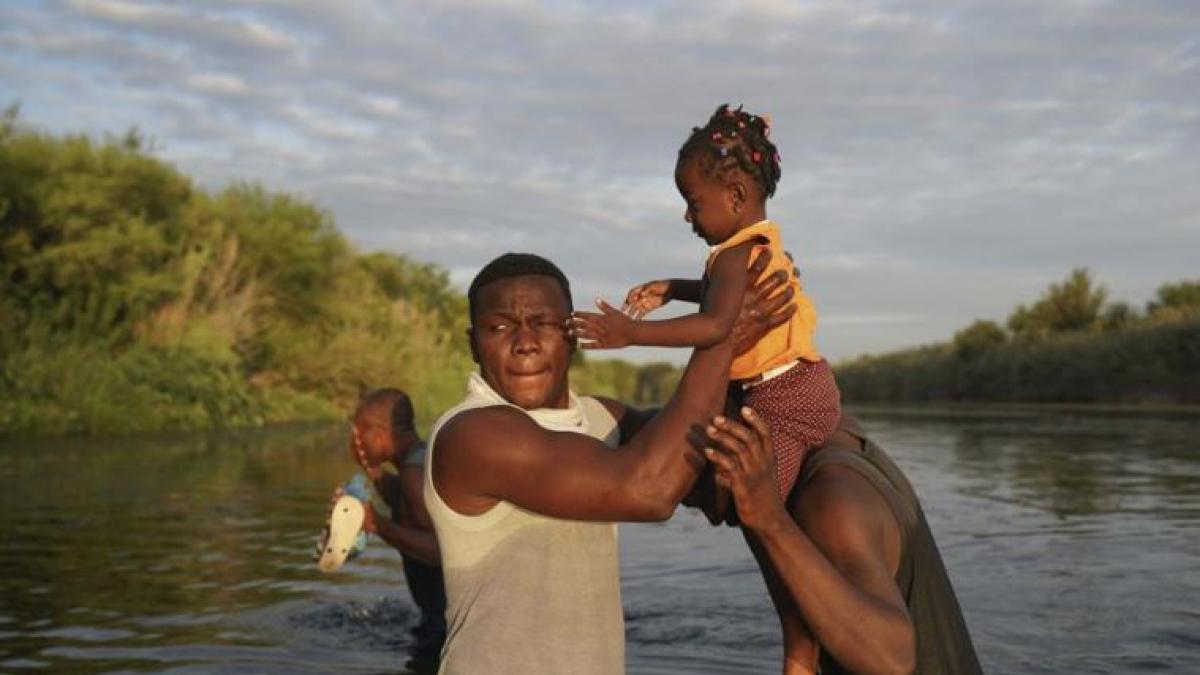The exodus drama from Haiti is intensifying in Mexico, where asylum applications from Haitians have increased by 157% in 2023, and their irregular migration is almost 13 times higher than the previous year.
Mexican authorities detected 41,705 irregular migrants from Haiti from January to November 2023, 1,333% more than the 2,910 detected during the same period in 2022, according to the Migration Policy Unit of the Ministry of the Interior (SECOP).
Additionally, Haiti displaced Honduras as the main country of origin of petitioners before the Mexican Commission for Assistance to Refugees (COMAR), 44,239 in 2022, compared to 17,220 applications from the Caribbean country.
Nearly one-third of the 140,982 asylum requests Mexico received in 2023 were from Haitians.
Haiti's play on Mexico's southern border
The humanitarian crisis Haitians are experiencing is mirrored on Mexico's southern border, where thousands roam the streets in search of food, while Gomer's office is overwhelmed with demand.
“Water, water, get me water” are the words of Bundy Modeste, a Haitian migrant, as he walks through Tapachula's 'Bicentenario' park on the Central American border with Mexico, where he finds a mobile work space while he waits. for his asylum procedure.
The man told EFE that he was a heavy truck driver but could not find any work, so his goal was to go to work in Mexico City or Tijuana, California, on the Mexican border.
“I'm looking for paper from Gomer, I don't have paper to go to Mexico or Tijuana for work, because I like it here more than America, because America (deported me) to Haiti in 2021. I don't want to go to America anymore.” United,” he said, showing his driver's license.
His case illustrates the hurdles Haitians face in Mexico, where Gomer recorded only 3,655 resolved cases of immigrants from Haiti, 8.28% of the total number of their applications.
“I need a job in Mexico, I'm there for two months, I have to wait for Gomer, wait for the 'e-mail', other Haitians like me are waiting for residency,” he said.
An unstoppable crisis
Haiti's evacuation worsened for the first time in 2021 with the assassination of President Jovenel Mose on July 7, a 7.2-magnitude earthquake on August 14, and the scourge of Hurricane Grace two days later.
These factors exacerbated the crisis in Haiti, which, according to the World Bank, is the poorest country in the Western Hemisphere, where food insecurity affects 4.9 million out of 11 million people.
Haitian Falu, fleeing the still unresolved issues, came to Tapachula to present his claim to Komar.
“Actually, here (Gomer) treated me well, I come here, they say they have to give you your phone number, 'e-mail', you have to wait months, and there, that's what they say, that's what happens. To come out with that character,” he noted.
Unlike immigrants from other nations trying to reach the United States, Haitians like Falu are more willing to stay in Mexico.
“We came here for a while to see if there was an opportunity to advance, you have to have money to continue there, there are many people who don't have money to advance,” commented the immigrant.

“Music ninja. Analyst. Typical coffee lover. Travel evangelist. Proud explorer.”

:quality(85)/cloudfront-us-east-1.images.arcpublishing.com/infobae/TEQF6EONZRFGLLLDIDD4L2O4EE.jpg)

:quality(75)/cloudfront-us-east-1.images.arcpublishing.com/elcomercio/XU32LRAEZFDDPNVHLFU3CKVBYY.jpg)



More Stories
Earthquake in the US today, Wednesday, May 29 – Earthquake’s exact time, magnitude and location via USGS | USGS | composition
President Arrivalo is left with no alternatives to dismissing the Attorney General
Passenger dies after jumping off world’s largest cruise ship in Florida